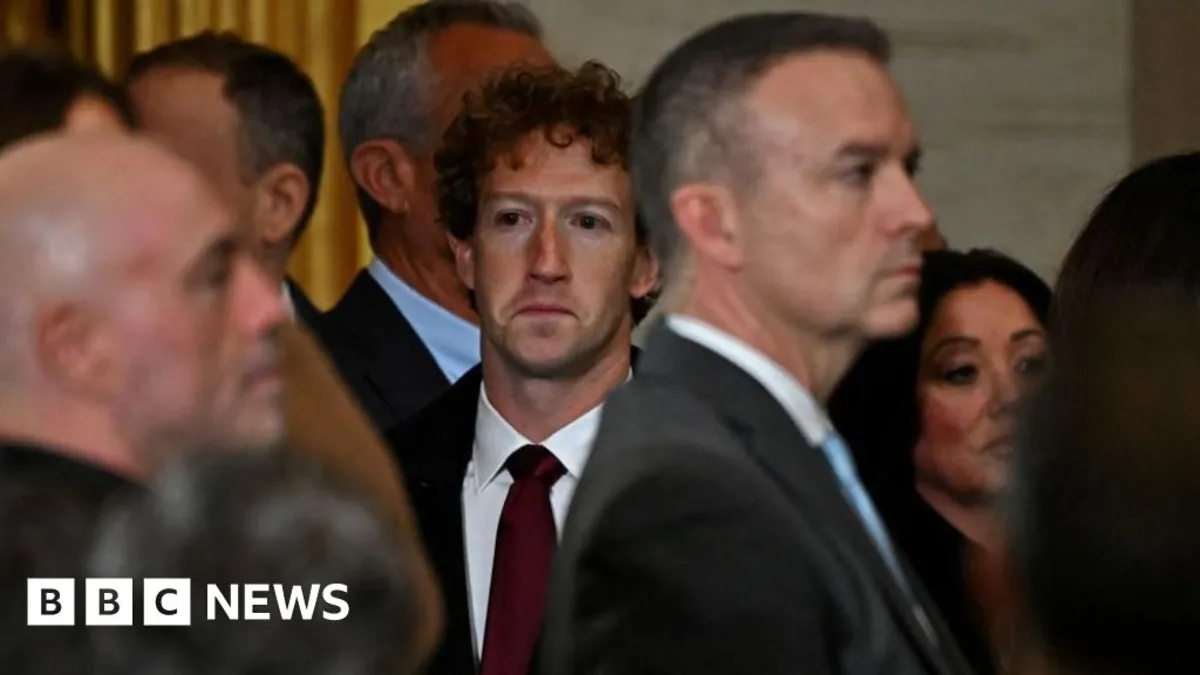
A groundbreaking antitrust trial against the social media giant Meta is set to commence in Washington on Monday. The U.S. Federal Trade Commission (FTC) alleges that Meta, which owns Facebook, acquired Instagram in 2012 and WhatsApp in 2014 with the intention of stifling competition, thereby establishing a monopoly in the social media landscape.
Despite the FTC having reviewed and approved the acquisitions of Instagram and WhatsApp, the commission has committed to closely monitor the outcomes of these deals. If the FTC prevails in this trial, it could compel Meta CEO Mark Zuckerberg to divest both Instagram and WhatsApp, significantly altering the dynamics of the social media industry.
Meta has expressed confidence in its defense, asserting that it will demonstrate that Instagram users have benefited from the platform's integration into the Meta ecosystem. Experts, however, argue that the FTC's case hinges on the assertion that the purchase of Instagram was primarily aimed at neutralizing rising competition faced by Facebook.
Rebecca Haw Allensworth, a professor of antitrust law at Vanderbilt Law School, emphasizes that Zuckerberg’s own statements, including various emails, may serve as pivotal evidence in the trial. He famously stated that "it's better to buy than to compete," a remark that could be interpreted as a direct acknowledgment of Meta's strategic acquisitions.
On the other hand, Meta is expected to argue that the intent behind the acquisitions is irrelevant in the context of antitrust legislation. They will likely focus on the consumer experience, contending that Instagram has flourished under Meta's ownership, thereby reinforcing their argument that the merger was beneficial to users.
Both Zuckerberg and former Chief Operating Officer Sheryl Sandberg are anticipated to testify during the trial, which may extend for several weeks. Their testimonies could provide critical insights into Meta's business strategies and the rationale behind its acquisitions.
The case, formally known as FTC v Meta, was initiated during the Trump administration but has the potential to become increasingly politicized as the political landscape evolves. Reports have emerged indicating that Zuckerberg lobbied Trump in person to persuade the FTC to abandon its case against Meta.
When approached by the BBC to confirm these reports, Meta refrained from providing a direct answer but issued a statement asserting that the FTC's legal actions against the company "defy reality," questioning the legitimacy of revisiting deals that had been approved over a decade ago.
The recent political dynamics surrounding the case are further complicated by President Trump's decision to dismiss two FTC commissioners. The commissioners, Rebecca Kelly Slaughter and Alvaro Bedoya, claimed that their ousting was intended to intimidate them and influence the commission's actions regarding Meta. Slaughter stated, "The president sent a very clear signal... if they don't want to do a favor for his political allies, they're on the chopping block."
Both Slaughter and Bedoya have voiced concerns about potential political interference in the case, with Bedoya expressing his hope for an untainted legal process. Meanwhile, FTC Chair Alan Ferguson, appointed by Trump, has indicated his intention to comply with lawful orders, though he expressed surprise at the notion of being directed to abandon the lawsuit against Meta.
The FTC is recognized as a crucial antitrust watchdog in the U.S., having successfully returned hundreds of millions of dollars to victims of fraud and implemented regulations against deceptive practices. However, as the trial against Meta begins, there are concerns about the administration’s intent to limit the power of independent regulatory agencies.
In contrast to the FTC's case against Meta, the Department of Justice is concurrently addressing a separate antitrust case involving Google, which has already established that the tech giant holds a monopoly in online search. The DOJ is advocating for a court to break up Google's search monopoly, highlighting the contrasting challenges faced by the FTC in its case against Meta.
Experts suggest that the FTC’s case against Meta may be more challenging to substantiate than the Google case. Laura Phillips-Sawyer, an associate professor of business law at the University of Georgia, noted that the FTC has a "real uphill battle" ahead, given the competitive landscape of personal network services compared to the more monopolistic nature of online search.
In response, Meta has asserted that the trial will reveal what is widely known: Instagram, Facebook, and WhatsApp are in competition with various other platforms, including TikTok, YouTube, and iMessage, emphasizing that the social media space is rife with competition.